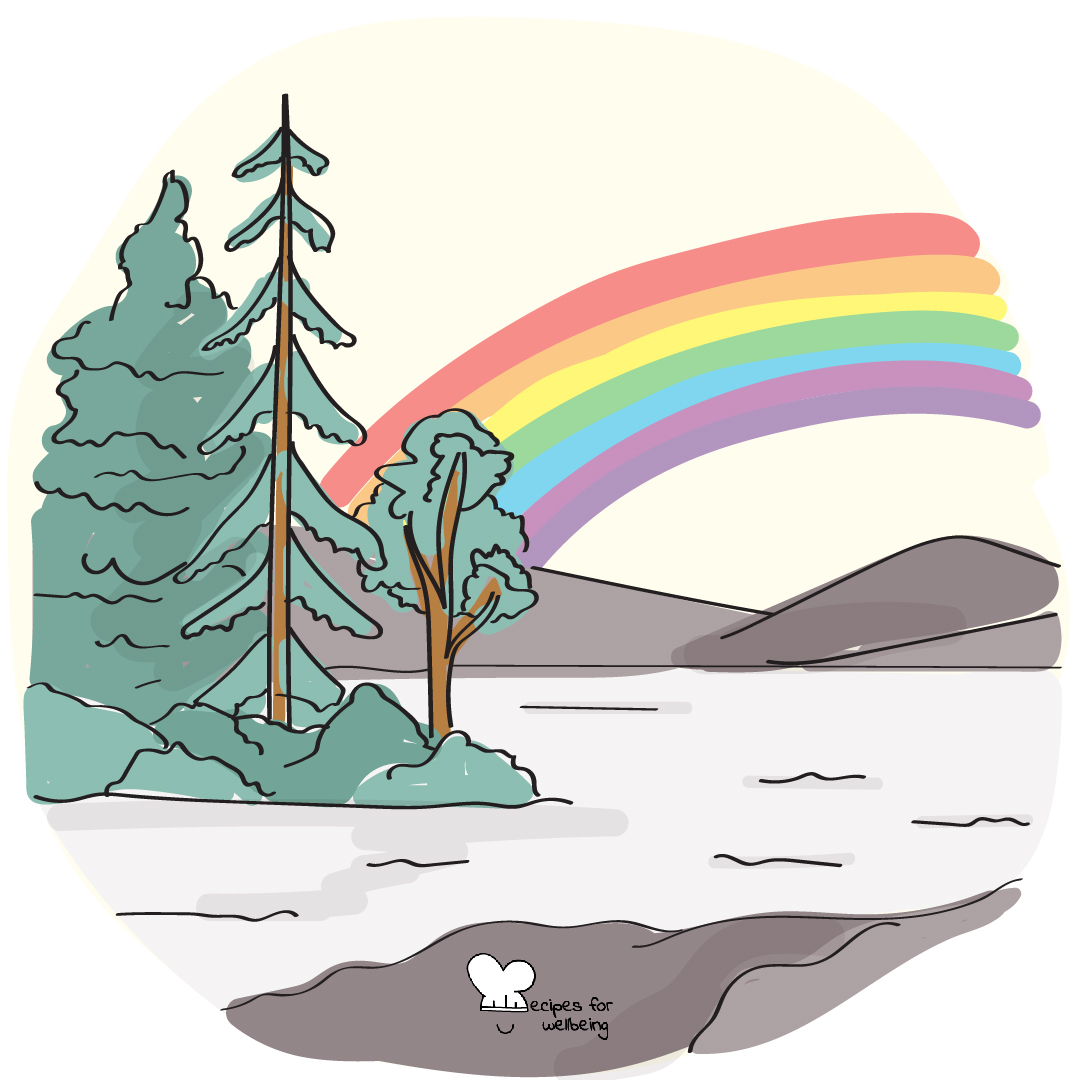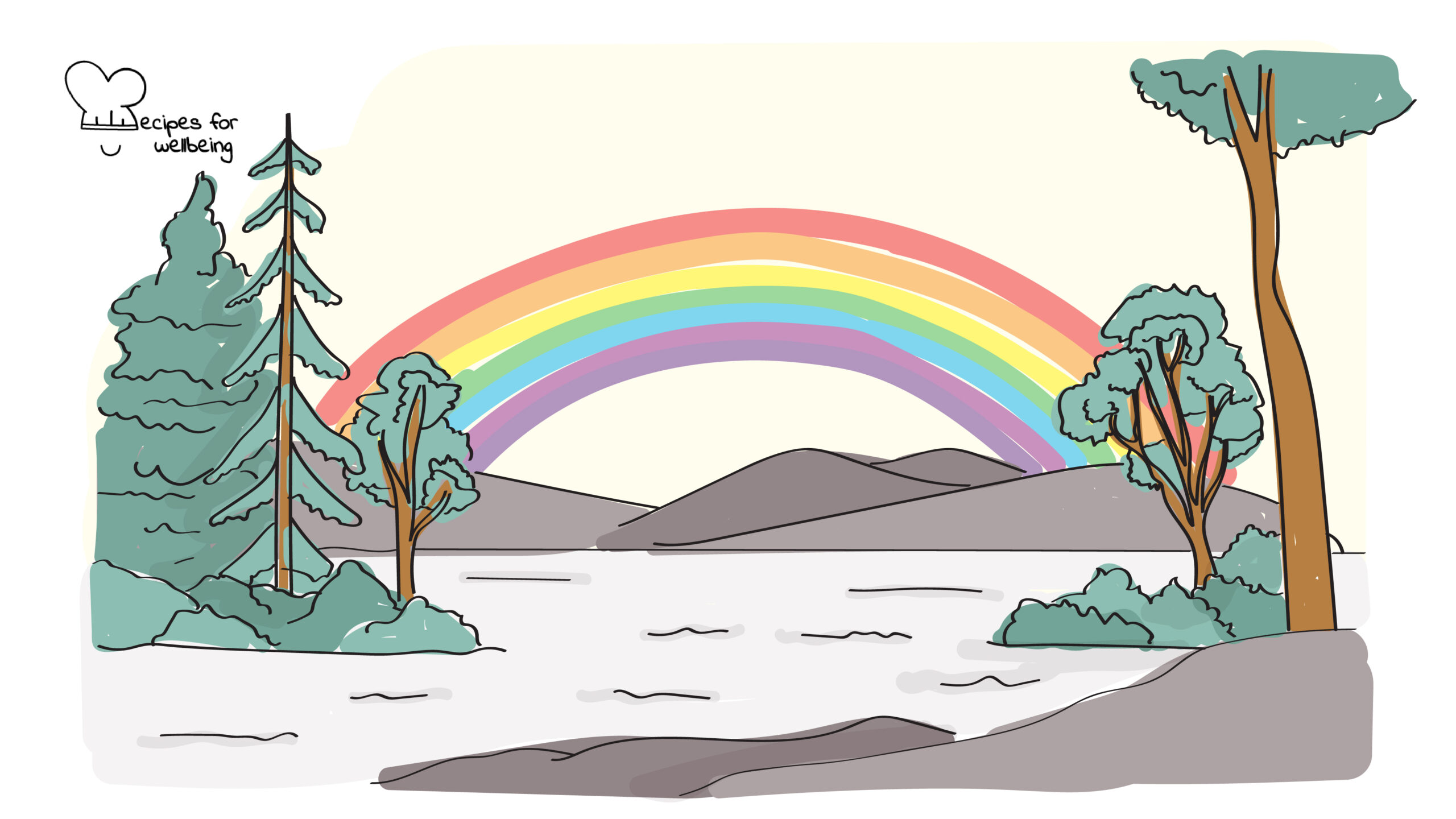
Mitigating aftershock for activists
Trauma always entails loss. ―Author Unknown
👥 Serves: 1 person
🎚 Difficulty: Medium
⏳ Total time: Ongoing
🥣 Ingredients: Book “Aftershock – Confronting Trauma in a Violent World (A Guide for Activists and Their Allies)” by Pattrice Jones (if you’re curious to find out more about it!)
🤓 Wholebeing Domains: Discomfortability, Liberatory Learning, Radical Care, Rest, Ritualising
💪 Wholebeing Skills: Agency, Compassion, Liberation, Movement, Perseverance, Sleep, Stress management

Mitigating aftershock for activists
📝 Description
Tips for activists to avoid or mitigate aftershock.
The following recipe has been taken from Pattrice Jones’ book Aftershock – Confronting Trauma in a Violent World (A Guide for Activists and Their Allies). The book is for activists and their allies and it includes practical tips for individuals, organisations, and communities to explore the culture of trauma that we have created and to find healing through ourselves, each other, and the rest of the natural world. This recipe presents you with practical tips to take before, during, and after high-risk actions to avoid or mitigate “aftershock”, which is nothing less than the psychological, physical, and emotional consequences of traumatic experiences endured in the course of your activism.
•••
Important: We shared this recipe as part of our blog post “Wellbeing for Ukraine” and you can access a translated version here (kindly translated by our changemaker friend Lisa Glybchenko).
👣 Steps
Step 1 – All the time
There are a few things you should be doing all the time in order to be a healthier, happier, and therefore more effective activist:
- Get your rest – Lack of sufficient rest can make the struggle much more difficult. Make time to sleep. Rest your body even if you’re having trouble sleeping.
- Take your vitamins – Get all of your essential nutrients by eating well and taking supplements if needed.
- Listen to your body – Where does it hurt? What helps? What is it trying to tell you? Do give it fresh air, plenty of exercise, and whatever safe and consensual pleasures it craves.
- Go outside – Get some fresh air and a dash of sunshine every day. If you can, get a little exercise along the way.
Step 2 – Before high-risk actions
Here are a few things you can do before high-risk actions:
- Practise, practise, practise – Practise any aspect of the action that can be approximated in advance.
- Use performance visualisation – This kind of mental rehearsal, i.e. imagining yourself successfully completing a task, actually improves performance.
- Get your rest – Too often we get less rather than more rest in the days leading up to a stressful action, leaving us especially vulnerable just when we need to be especially strong. Put off anything you can until afterwards.
- Pre-hydrate – Dehydration can cause fatigue and fuzzy thinking, neither of which will help you during a stressful action. Make sure to prehydrate – test this out in advance to make sure it works for you.
- Remember that food is fuel – You’ll probably want to eat lightly on the day of a stressful action. What make bicyclists do to prepare for a long rise is to “carboload” by eating lots of complex carbohydrates, such as those found in rice and paste, the night before.
- Respect your own animal rights – Don’t go out drinking the night before and then expect your poor body to juggle a hangover along with the stress of activism after too little sleep.
- Talk and listen – You have to trust your comrades, too. If you can, tell them your hopes and fears for the action, and then listen to theirs. Plan together for problems that might arise.
Step 3 – During high-risk actions
If you start to feel stressed, no matter what the situation, here are some things you will need to do:
- Remember to breathe – If you can do so safely, stop, breathe, and review your options and plans. If you cannot stop safely, then it’s even more important to remember to breathe deeply and steadily.
- Talk to yourself – Talk to yourself in a soothing manner. If it’s true, say, “We expected this. I know how to handle this.” Otherwise, say something like, “Okay, this is new and scary, but I can figure out what to do.”
- Listen to everybody – Listen to yourself when you say those things. Listen to your feelings, too, even if you then have to set them aside to do whatever you need to do. Listen to your comrades as well as they might be trying to communicate important facts or tell you about feelings that they need to share with somebody.
- Don’t forget your friends – In a joint action, trust your comrades to be there for you, and make sure you are there for them. Even in a solo action, you are not alone. Even though they may not be physically present, your comrades in the struggle for peace and freedom are with you in spirit and will be there to help you recover.
Step 4 – After high-risk actions
After a potentially traumatic experience, be prepared for a stress reaction. Do what you can to take care of yourself or allow others to care for you, remembering that taking the time and energy to do that right away may prevent or mitigate the emergence of more entrenched and debilitating symptoms of post-traumatic stress or clinical depression.
- Check in with yourself – Pay attention to your body. Watch out for uncharacteristic behaviour or feelings that seem to come out of nowhere.
- Feel your feelings – Now is when it’s especially important not to fear your feelings. Unexperienced emotions can come out in destructive ways or be turned inward as disease or depression. If necessary, think about gentle ways to access your feelings.
- Express yourself – Whether or not you share them with other people, try finding words for your reflections on the actions. If you’re not verbal, or it’s not safe to put certain things into words, try other forms of expression such as music, movement,m or visual art.
- Listen to others – The people who went through the experience with you will have their own thoughts and feelings. Invite them to talk, and then listen with empathy.
- Don’t make things worse – People sometimes “self-meditate” stress or depression with alcohol or drugs. While social drinking is fine, regular or binge drinking or drug use create more problems than they solve.
- Go back to nature – The healing power of nature is formidable. Spend some time in the woods, at the ocean, or wherever you are most able to feel connected to the natural energy that we call life.
Step 5 – If aftershock arises
If you experience several characteristics of post-traumatic stress or depression and they last for several weeks or cause significant distress or disruption, it’s time to take action and seek help.

